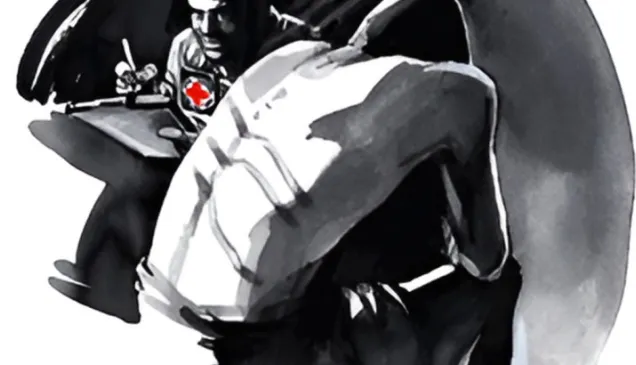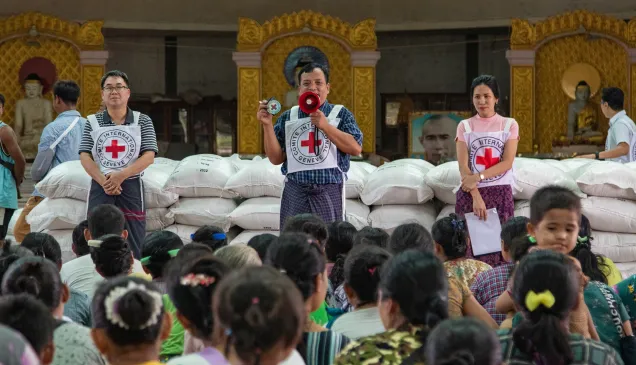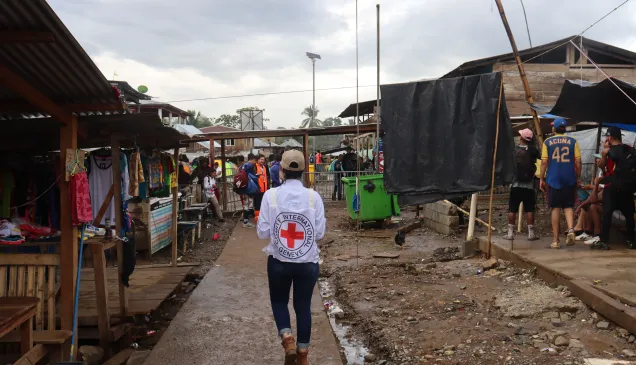Azerbaijan: The prisoner's guardian angel
Pierre Reichel worked for the ICRC in Nagorny Karabakh during 1994 and 1995. He recently talked about his experiences
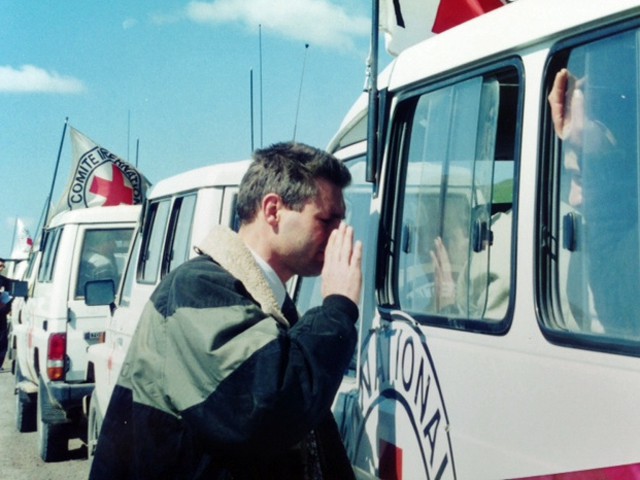
How do you remember your assignment in Nagorny Karabakh?
I'd only been with the ICRC for a year back then, working in Tajikistan as an interpreter. In November 1994, I was posted to Nagorny Karabakh, where I stayed until all Azerbaijani and Armenian hostages were released in May 1995.
I have vivid memories of that assignment. We worked with two nurses whom the prisoners liked a lot – Elizabeth and Ruth. One of the peculiarities of working in Nagorny Karabakh was that the prisoners were held at over 15 facilities, so we visited one of these places almost every day. We were spending a lot of time on the road! We tried to bring a positive attitude during our visits, so I have lots of pleasant memories. There were moments of deep sorrow, but we also shared great joy.
Ex-detainees mentioned your Russian. How did you come to learn Russian? Did you ever think it might help you save lives?
I decided to learn Russian because I wanted to look in a direction no-one else was looking in. I could never have imagined that one day I would be working for a humanitarian organization. But that's how life turned out, and after 20 years of ICRC experience I'm grateful for the things this work has given me.
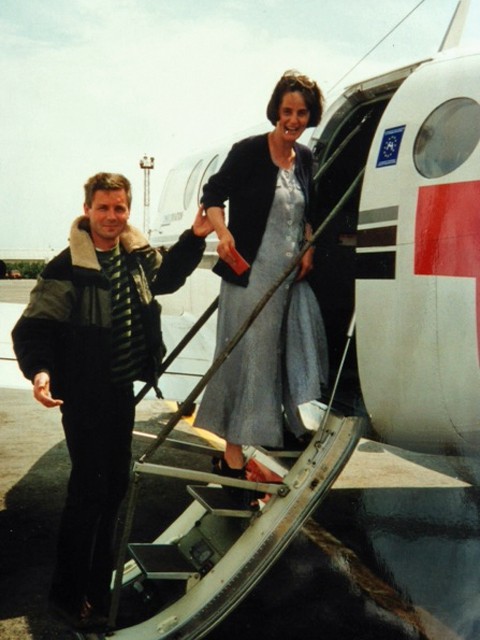
Was it easy for detainees to talk to a stranger like you? What did they talk about?
There's no exact formula for successful communication. When you enter a cell as a foreigner, it's important to remember that you're a guest. Being an interpreter for the nurse allows you to slowly win the confidence of the prisoners. If you don't rush things, dialogue happens by itself.
I always tried to establish relationships of trust, as well as doing my job as a detention delegate. An ICRC delegate should bring joy to the daily lives of these people. That's not just "the right thing to do," it's an essential part of the visits. We found words of encouragement for each prisoner during each visit. When one of the prisoners asked me and the nurse where we got so much energy from, we always answered: "It's you who are filling us with this energy." The prisoners always let us know that they were grateful, and that really did fill us with energy. Their gratitude was sometimes expressed in a smile, sometimes in open conversations, jokes or a conspiratorial wink. Sometimes it was tears, sometimes laughter, and sometimes prisoners gave us hand-made objects or poems they had written.
You could write a book about it. I remember all of these moments – they have to do with people's lives.
One of the people captured during the active phase of the Nagorny Karabakh conflict mentioned you. His name is Mushfig.
I remember Mushfig well – he was one of the youngest prisoners. He didn't speak Russian very well, but there was always a prisoner who could interpret for us. The rest was written in his eyes. I remember accompanying him to the operating theature when he had to have his appendix removed. I stayed with him during the whole operation and it went well. But the most memorable thing about him was that after all he'd been through he still had an open, trusting expression – the expression of a 16-year-old teenager who was determined to stay optimistic despite everything.
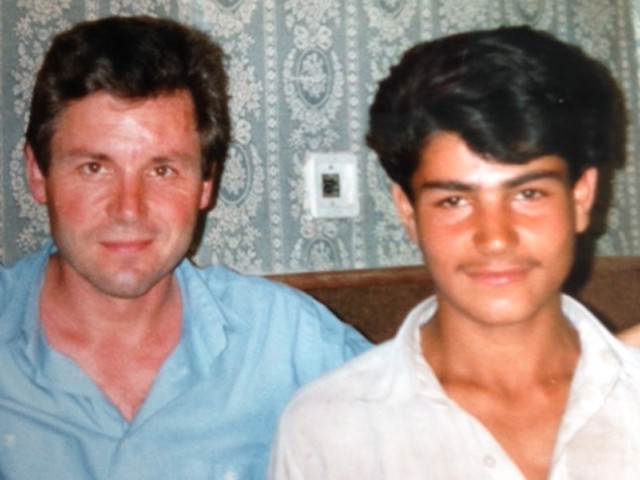
Red Cross messages (RCMs) are an important way of restoring contact between family members. It's so important for families to receive messages from their captured relatives. Mushfig and his sister also mentioned RCMs written to their families.
What is an RCM?
The RCM is a form to be filled in by the detainee or his/her close relatives. It may only contain family news. No extra information may be conveyed through an RCM, as its sole purpose is to establish contact between family members. The RCM is an open letter; it doesn't even have an envelope. The authorities of both the detaining and the receiving side have the right to censor it. The ICRC explains all this to the detainee, and usually it's the ICRC delegates who collect and deliver the RCMs exchanged between detainees and relatives. Most of the families value not only what's written in the RCM but also the handwriting of their loved one, which gives them proof of their existence.
What does the ICRC do if it observes mistreatment?
As a neutral, impartial humanitarian organization, the ICRC tries to maintain contact with all sides to a conflict. As part of our work, we visit and assist people who are suffering the effects of armed conflict or violence. The ICRC shares its observances with the authorities concerned, in confidence, and tries to improve the well-being of victims.
What have you done since you left Azerbaijan?
I worked in the northern Caucasus for eight years, then a year in Kandahar, Afghanistan, a year in Erbil, Iraq, two years in Mazar-i-Sharif (Afghanistan again) and three years in South Ossetia. And now I've just finished working in Kirkuk, Iraq.
Have any former prisoners ever tried to trace you?
Two years ago, a former prisoner called me, totally unexpectedly. I have to admit that I was very pleased!
What plans do you have for the future?
I'm always ready for new adventures, but now I'd perhaps prefer to have them closer to home. I need to think about my family and friends back in Switzerland and not leave them for so long!

